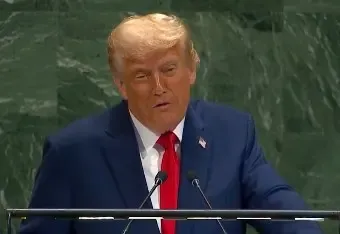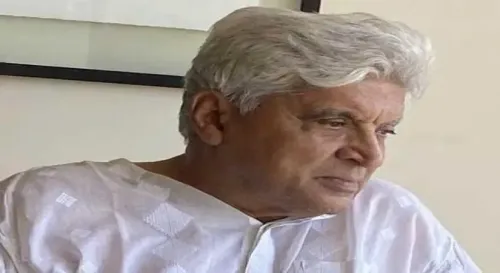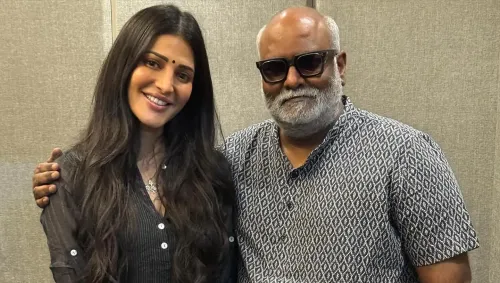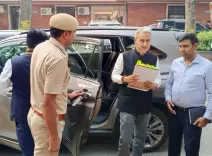Did Trump Just Launch a Scathing Attack on the UN at UNGA?

Synopsis
Key Takeaways
- Trump's critique of the UN highlights ongoing debates about global governance.
- Call for action against bioweapons reflects rising concerns in international security.
- Immigration issues were a focal point, emphasizing national sovereignty.
- Climate change policies faced skepticism, illustrating divided opinions.
- International relations remain strained, particularly with European allies.
United Nations, Sep 24 (NationPress) US President Donald Trump launched a scathing critique of the United Nations and the initiatives it supports, including efforts to combat climate change, while also directing pointed remarks at Washington's allies on Tuesday.
His remarks faced rebuttals from speakers who took the stage both before and after him at the General Assembly.
“What is the function of the UN?” he queried. “It seems all they do is pen a strongly worded letter and never follow it up. It's merely empty rhetoric, and empty rhetoric doesn't end wars,” he asserted.
“It’s not even nearing its potential,” he claimed.
In an incident that seemed to echo his claims about the UN's inefficacy, the escalator he was on suddenly halted, and the teleprompter malfunctioned.
He stated that it offers a platform for direct communication and proceeded to deliver a lengthy address, largely resembling a campaign speech aimed at a domestic audience.
His speech extended for 57 minutes, far exceeding his allotted 15-minute time slot.
He touched upon the record stock market, the halting of illegal immigration, tariffs, and his ambition to reclaim the “greatest economy in the history of the world” that he claimed was established during his first term.
Former President Joe Biden was a target of intense criticism.
A notable positive aspect of his address was his announcement of a plan to prohibit biological weapons.
“To avert potential catastrophes, I am declaring today that my administration will spearhead an international initiative to uphold the Biological Weapons Convention,” he announced.
Trump stated he would organize a summit of world leaders to address the production of bioweapons utilizing artificial intelligence.
“If bioweapons were deployed, there would be no United Nations to discuss,” he warned.
Without explicitly naming China, he attributed the COVID pandemic to “reckless experiments abroad” involving biotechnology.
Speakers preceding him, anticipating backlash, defended the UN.
General Assembly President Annalena Baerbock remarked that without the safety provided by the UN’s International Civil Aviation Organisation, leaders wouldn't have been able to gather.
Secretary-General Antonio Guterres emphasized that the UN was established for cooperation over chaos, law over lawlessness, and peace over conflict.
However, he cautioned that the choice now lies between “a world of raw power versus a world of laws, a world that is a scramble for self-interest or a world where nations unite.”
Indonesia’s President Prabowo Subianto asserted that his nation achieved independence through the UN, which also aided in its development and poverty alleviation.
Trump criticized illegal immigration that affected not just the US, but also swept across the globe.
He reproached European allies for not taking sufficient action against Russia.
In a caution directed at European nations, he claimed that some countries are “heading towards disaster” due to illegal immigration disrupting their societies.
He warned that London was succumbing to Sharia law.
He spoke about the persecution of Christianity.
While discussing free speech, he stated, “Together, let us uphold free speech and expression. Let us safeguard religious freedom, particularly for the most persecuted faith on the planet today. It’s called Christianity.”
In his critique of the UN’s inefficacy, Trump mentioned that he had offered to renovate the building for $500 million, but it opted for other contractors who went over budget and delivered subpar work costing several billion dollars.
He dismissed the notion of a global climate crisis and advocated for the use of carbon fuels instead of wind energy.
Trump imposed punitive tariffs on Brazil for prosecuting his ally, former President Jair Bolsonaro, who was convicted for attempting to instigate a coup.
However, in his address, the US President expressed his acceptance of Brazilian President Luiz Inacio Lula da Silva, who spoke before him, and proposed a meeting next week.









